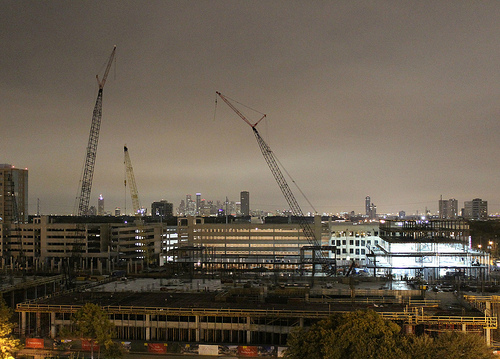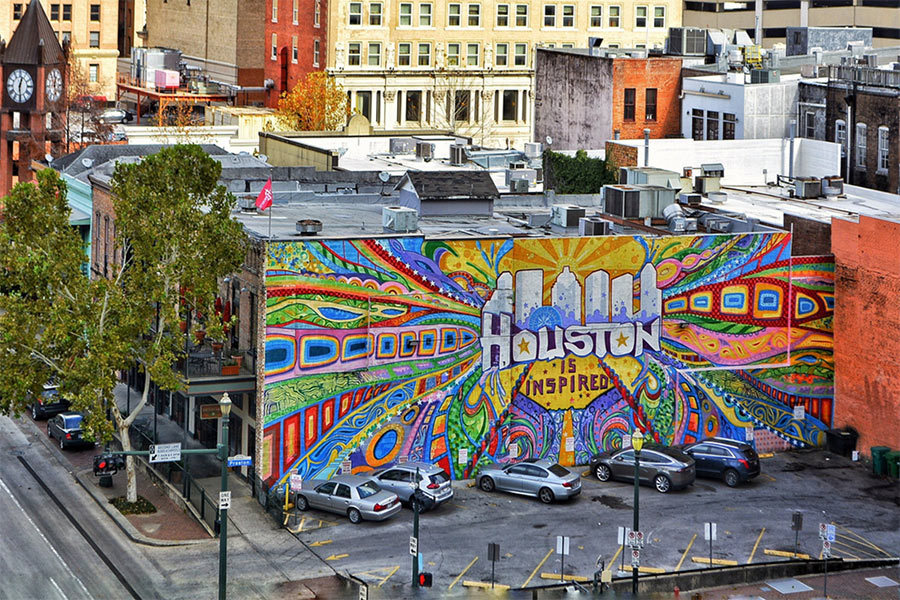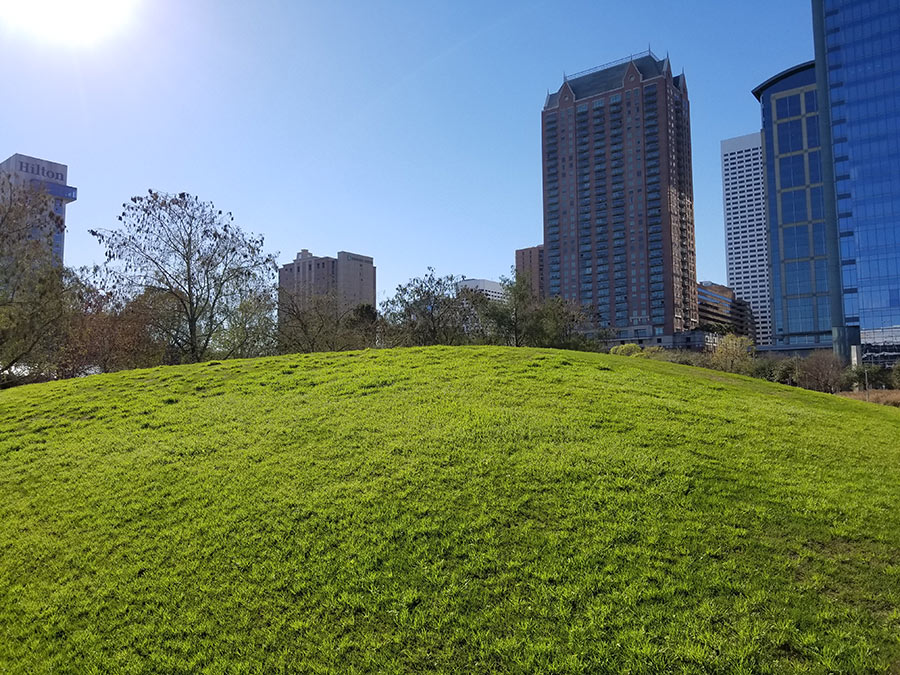
- ‘Valley Ranch’ Mixed-Use Medical District Planned for Kingwood at Grand Parkway, US-59 [Houston Business Journal]
- Slideshow: A Progress Report on ExxonMobil’s 385-Acre Spring Campus [Prime Property; previously on Swamplot]
- Sylvia Casares Opening Third Sylvia’s, Minus the ‘Enchilada Kitchen,’ in Former Sharky’s Space in Energy Corridor, This May [Culturemap]
- Tiff’s Treats Opening Fourth Houston-Area Store on March 8, at Beltway 8 and Briar Forest [Houston Business Journal]
- Median List Price Per Square Foot in Houston Increased 22.4% to $93 in Past Year [Movoto]
- 4 Rare, Centuries-Old Trees To Be Cut Down To Make Way for a Bypass Around Snook [Houston Chronicle ($)]
- The Forces Behind Gentrification in Houston [Not of It]
- Public Input Sought on Proposed Memorial Park Improvements [Houston Politics; previously on Swamplot]
- Houston Arts Alliance Coordinating $86K Budget for Art at New BARC Adoption and Animal Shelter Facility [Culturemap]
- The Costs of Houston’s Growth on Public Health [OffCite Blog]
- Rice Study Looks To Help HISD Prevent Asthma Attacks [Houston Chronicle ($)]
- ‘Eclectic’ Houston Heights Association Home & Garden Tour Happening April 5-6 [Houston Chronicle]
Photo of the River Oaks District: Russell Hancock via Swamplot Flickr Pool
Headlines





Uhhhh….. that ‘mix use’ development is going to be in Porter/New Caney and NOT Kingwood. The Grandparkway segment G intersects w/ 59 (whoops I mean 69) between FM1314 and FM1485. Nice try. And so it begins. Anything that is north of Humble and south of Splendora is going to be referred to as Kingwood as to make the businesses / new residents not feel like they’re moving into an ‘undesirable’ part of Houston….
As someone who grew up in northeast Houston, it will be a sad day when I can no longer make fun of the Porter Walmart as no one will know what I’m talking about. “Porter? Where’s that? You mean North Kingwood right?”
Re: Forces behind gentrification
The article missed the largest drivers of gentrification – economics: the quick inflation of property taxes in desirable areas, the shrinking middle class, supply and demand of real estate, shrinking family sizes in wealthier demographics, and public school system improvements.
the gentrification article states that all of the out-of-towners moving here want to live in the city with its amenities. i continually here this, so i’d be interested in seeing some statistics to support this fact. in my experience (which by definition is limited), most of the folks that are older than 35 that move hear from the east and west coasts love the suburbs. i’ve never seen people so giddy. they feel like kids in candy stores because they can get so much house/property/schools for their money. the commute is a paid, but they are used to long commutes. the under 35 crowd that i know that moves here, wants to live in the city. but that’s true for all folks under 35 regardless of where they are from. long story short, i don’t think the folks from the coasts are driving the gentrification of houston.
I quit reading the gentrification piece as soon as I got to “having been in Houston almost two years.”
mkultra25, I’ll take claim as to writing that piece. Having been around the development community here in Houston since my move here, I really do feel that I’ve gained a pretty good idea as to the trends in Houston. Do I know everything? no, not close. This was a mere reflection of what I’ve seen in Houston since getting here. I’ve got a great deal to learn still.
I’d like to ask though, is there something that you can add to the topic? I’d be interested to hear it. I don’t support the idea that you have to be born in Houston to understand the development patterns of the city. Most of the people I’ve met since coming to Houston aren’t native Houstonians. But, I can say that I am not as emotionally entrenched in the topic as other longtime residents are. So, if you are a longtime resident, I apologize if my thoughts differ from yours. It is a mere observation, and I’m more than interested to hear other perspectives on the topic of gentrification.
Superdave… Yes, there are great economic forces at hand. This is common across the country, and may not be exclusive to Houston. I was hoping to concentrate on what was exclusive to Houston. I make some mention of the affordability of property in cities, and fully understand the mechanics behind it. I could have elaborated more.
htownproud… That is a good point about age. Maybe a better force behind some of the inner-loop redevelopment is purely demographic in nature, as many new Houstonians are younger (under 35), and coming to find work in the energy and health fields. The suburban development here is not unlike that of Northern Virginia and Maryland, or my native Metro-Detroit region.